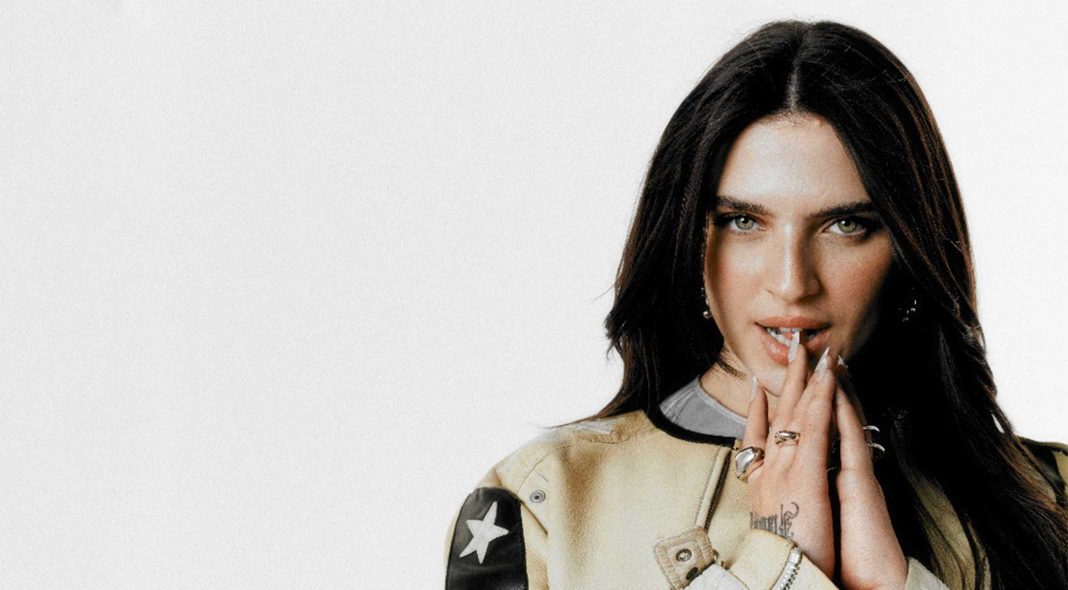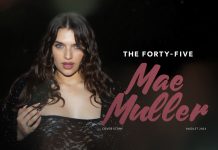If you grew up in the UK in the noughties, there is every chance that you might see Eurovision as a bit of a joke. Whilst it has always been a fun, colourful celebration of all things pop (and potent LGBTQIA-idebted culture), a slew of bad results and even worse songs meant that we plummeted pretty quickly from the dizzying highs of ABBA and Gina G to the lows of Scooch and Jemini, performing once and then instantly resigned to the annuls of pop history.
Fast forward to the 2020s though, and some Eurotastic change is afoot. Whether it’s the desire to unite post-Brexit and post-Pandemic, a deepening sense of poptivism or just a greater willingness to have a laugh and try something new, mainstream music fans and artists have slowly been coming around to Eurovision as something more than simple Saturday entertainment. Nowadays, it’s understood as a genuine opportunity for exposure, a chance to launch a career through the medium of a fist-pumping singalong.
To stand any chance of success though, you need a pretty solid entrant. This year, the UK is pinning its hopes on Mae Muller, a 25-year-old singer-songwriter whose Eurovision connections have been fated since childhood, when she appeared in the music video for 2022 show host Mika’s song ‘Grace Kelly.’ Having written her own songs since the age of eight, she broke through into the industry after her tracks were spotted on Instagram, signing to Capitol Records in 2018. You might have heard her solo song ‘Dependent’, which did bits online in 2020, or 2021’s ‘Better Days’ with Neiked and Polo G, a funky collab that has sold well both here and in the US. If you attended any of the 32 dates of Little Mix’s 2019 ‘LM5’ tour, you may have even seen her as the opening act, stoically winning over the young crowd with her upbeat, accessibly-feminist songs about love and life.
Mae didn’t originally write ‘I Wrote A Song’ for Eurovision, but with a hint of the Dua Lipa ‘New Rules’ about it, it seems perfectly catered for the task. A sassy but still family-friendly f-you to an ex, its earwormy “Da da da da da di” hook and spoken-word element seems perfectly designed to connect with both a homegrown and international audience. Co-written with Karen Poole (Becky Hill, Kylie Minogue) and produced by Lewis Thompson (Joel Corry, Rita Ora), it splits the difference between the kind of EDM energy that tends to do well at Eurovision, and Muller’s normal brand of girl power pop, heavy on relatable feelings and brutal honesty. Lacking in the cheese that has historically held Eurovision entrants back from longevity, it’s got the hallmarks of a longer-term smash, having been the first UK entrant since Blue in 2011 to chart upon single release rather than purely in line with the show itself.
Having become the second Eurovision entrant to be hand-selected by the BBC in conjunction with TaP music, Muller feels well placed within this fresh wave of Eurovision enthusiasm, pushing its historically-naff reputation into new territories of sincere musical appreciation. When Sam Ryder placed second in 2022 with ‘Spaceman’ (the best result for the UK since 1998), he became the perfect ambassador for the brand, endearing audiences by gushing about dreams coming true and not taking yourself too seriously. By Christmas, he had a Number One album and presented the UK’s flagship New Year’s Eve TV show. Meanwhile, Italy’s finest Måneskin, who won back in 2021, have firmly crossed over into ‘legitimate’ rock markets, booked for this year’s Glastonbury festival and shifting over 40 million records worldwide. If Eurovision was once seen as a retirement home for artists on their last career lap, it’s now thought of as a genuinely sustainable launchpad, the kind that’s hard to come by in the post-music TV age.
Where Sam Ryder perhaps represented the golden retriever ‘just happy to be here energy’ of a factory-settings Eurovision contestant, Mae Muller perhaps feels like someone who isn’t letting her gratitude get in the way of a wider career game plan. Affectionately getting down with the idea of calling her fans ‘Muller Corners’, she’s remained good-humoured and witty through the entire Eurovision process, making funny TikToks and graciously taking flak when fans seemed disappointed that she wasn’t the long-rumoured entrant, Rina Sawayama. She’s displayed a heartening level of respect for Ukraine, the 2022 winners who are unable to host due to the war, but has also managed to piss off the UK right wing, latching onto comments she made back in the pandemic about Boris Johnson and his need for an intensive care bed, or her criticisms of the Conservative’s removal of free school meals for underprivileged kids. Misconstrued as a lack of patriotism, her truth-telling spirit feels quite refreshing, a sign of her potential to go far as a fully-fledged pop star with a personality of her own. Teamed with her singing and ability to turn a stellar fashion look, it really does feel as if Eurovision might mark a moment where our new favourite pop star is born.
So how likely is it that 2023’s Eurovision will go down as a triumphant month of Mae? At the time of writing, Muller is the bookies’ eighth favourite to win, but everything can still change on the night. Rehearsal visuals look strong, and alongside the song itself, she can potentially bank on some goodwill voting for the UK as hosts, swept up in the excitement of being in Liverpool and basking in the glory of British culture. Either way, it seems likely that her ride to fame is only just beginning. With Eurovision acting as a solid re-introduction to the pop space, who knows how far she can go?
READ MORE: Meet the pop disrupters




